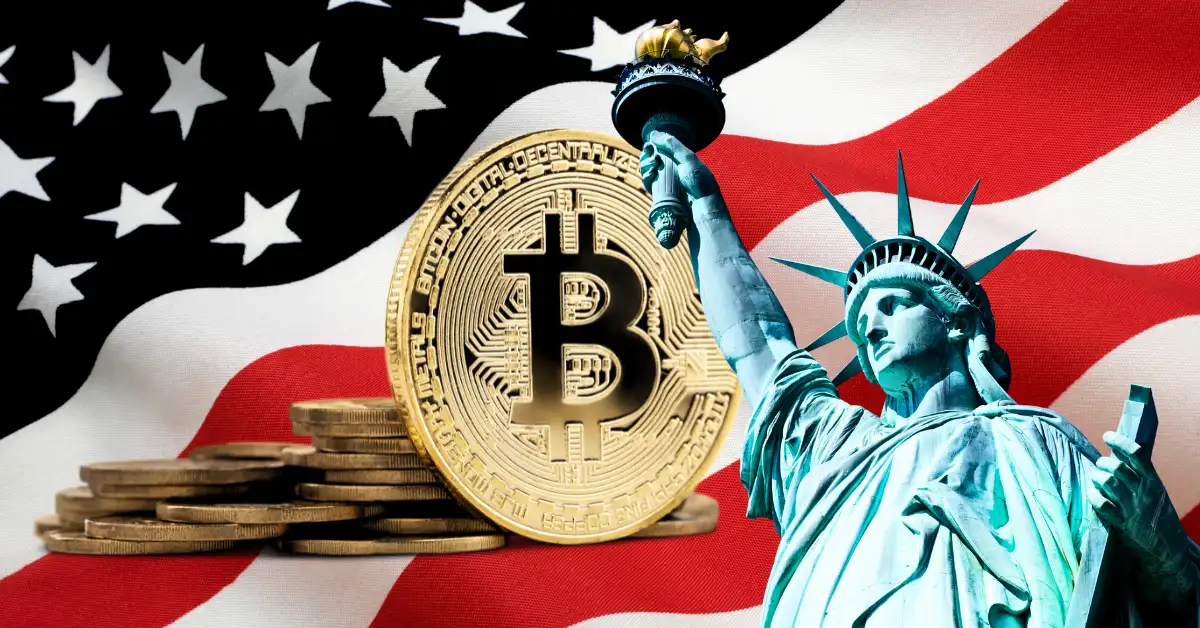
On January 23, 2025, President Donald Trump ordered the creation of a cryptocurrency working group to propose digital asset regulations and explore a national cryptocurrency stockpile. The move aims to overhaul U.S. crypto policy, ensuring innovation, security, and global leadership in the rapidly evolving digital asset space.
Could this initiative change how countries view reserve assets and redefine the global financial system? Bitcoin’s potential to alter power dynamics in the financial world is becoming more apparent.
The Strategic Bitcoin Reserve Bill is a legislative proposal aimed at establishing a national reserve of Bitcoin for the United States. The primary objectives of the bill include:
The Bitcoin Reserve Bill lays out a comprehensive strategy to incorporate Bitcoin into the U.S. financial system. Here are the major components of the law:
Establishing a National Bitcoin Reserve
The U.S. government will aim to acquire 1 million bitcoins over a five-year period. This would account for 5% of Bitcoin’s total supply, making the U.S. one of the largest holders of the cryptocurrency.
Annual Bitcoin Purchases
To reach the target, the federal government will purchase 200,000 bitcoins annually for 5 years. The funding for these purchases will come from:
Creation of the Digital Asset Oversight Committee
A Digital Asset Oversight Committee will be established to oversee the acquisition, storage, and management of the Bitcoin reserve. The committee will:
Regulatory Clarity
The Bitcoin Reserve bill emphasizes creating a clear and consistent regulatory framework for Bitcoin and other digital assets. This includes:
As of January 2025, here are some key statistics to help assess the potential of the U.S. Bitcoin reserve:
These are dynamic numbers. The economy changes regularly and its benchmarks change over time.
While the US Bitcoin Reserve Bill is a landmark, the first country was El Salvador which, in September 2021, became the first country that adopted Bitcoin to be used legally. This new move has, in turn, reshaped its entire financial world. A blueprint perhaps, and a cautionary case study for many other nations wanting to do this.
Why Do El Salvador Need Bitcoin?
El Salvador had several economic issues that compelled it to turn towards Bitcoin adoption:
Remittances Dependence
Remittances make up 23% of El Salvador’s GDP, with millions of citizens receiving money from abroad. Traditional remittance services like Western Union charge high fees, reducing the amount families receive. Bitcoin offers a cheaper and faster way to transfer money.
Limited Financial Inclusion
Over 70% of Salvadorans lacked access to banking services. This meant that a majority of the population was not engaged with any form of financial system. Bitcoin and digital wallets like Chivo allow unbanked citizens to send, receive, and store money digitally. Therefore, financial services became more accessible.
El Salvador uses the U.S. dollar as its official currency, which limits the control of the monetary policy of the country. By using Bitcoin, the government was seeking to diversify its financial system and gain more independence.
To adopt Bitcoin, El Salvador took several significant actions:
El Salvador’s Bitcoin adoption has had both positive and negative effects:
Benefits
Challenges
Comparing the U.S. and El Salvador’s Bitcoin Strategies
| Aspect | United States | El Salvador |
| Bitcoin Use Case | Strategic reserve asset | Legal tender |
| Bitcoin Holdings | 200,000 BTC ($21 billion value) | 6,044 BTC ($610 million value) |
| Annual Purchases | 200,000 BTC | No specific target |
| GDP Impact | Target reserve: 0.57% of GDP | Bitcoin holdings: 1.6% of GDP |
| Key Challenges | Market volatility, regulation | Public mistrust, infrastructure issues |
El Salvador’s experience provides key lessons for the U.S.:
The U.S. Bitcoin Reserve is likely to have significant effects on the crypto market:
The concept of a potential Bitcoin reserve has implications for the US dollar, appears to be quite complex and up for debate. There are different viewpoints:
The actual impact will depend on various factors, including the scale of the Bitcoin reserve, the regulatory environment, and how widely Bitcoin is adopted by individuals and businesses.
The US Bitcoin Reserve Bill sets the stage for a transformative era in the U.S. financial system. By incorporating Bitcoin into its national reserves, the U.S. could:
The Strategic Bitcoin Reserve Bill is a significant step in the discussion about digital assets and their future role in the global financial system. However, it comes with challenges, including price volatility, regulatory uncertainty, and security concerns. The impact on the U.S. dollar remains a complex issue, with opinions divided.
The Strategic Bitcoin Reserve Bill is a U.S. law to establish a national Bitcoin reserve, acquiring 1M BTC over five years to boost financial security.
The U.S. plans to hold 1M BTC by 2030. Currently, it has acquired 200,000 BTC as part of its five-year Strategic Bitcoin Reserve strategy.
As of 2025, there are over 30,000 Bitcoin ATMs in the United States, making it the country with the highest concentration of Bitcoin machines.
The collapse of the Terra-Luna ecosystem is back in the news and this time, one…
Bitcoin is under huge pressure after falling sharply this week, and now close to its…
Story Highlights The live price of the Monero crypto is . XMR eyes $820 in…
Pi Network has reached its first Open Network anniversary, but instead of fireworks, the mood…
Vitalik Buterin sold 8,827 ETH worth $18.45 million over the past week. Ethereum dropped after…
Bitcoin has now fallen below $64,000, adding fresh pressure to an already fragile market structure.…